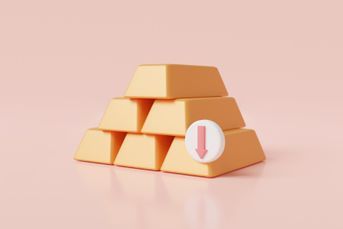How to procrastinate better
Procrastination can reach into many areas of people's financial lives, from mortgages to financial planning and retirement. Here are some ways to nip it in the bud,
We’ll never get around to figuring out exactly how much procrastination costs Americans. But a new study gives us an idea. When interest rates plunged in the wake of the financial crisis, a fifth of those eligible to refinance their mortgages didn’t act. That cost them a median of $11,500, or a total of about $5.4 billion.
There are also rebates people don’t mail in, portfolios they don’t rebalance and payment due dates that slip their mind. The problem here, economists say, isn’t just laziness. It’s memory. Every time a decision or action is postponed, the chance that it will be completely forgotten increases.
In addition to messing up their finances, procrastinators mess with traditional economic models that assume everyone acts rationally — by never incurring a late fee unless they have to, for example.
“People are putting things off that they want to do,” says Boston University School of Management professor Keith Ericson. When you procrastinate, a series of small delays “bring you to a place where you don’t want to go.”
(See also: Helping hack attack victims an opportunity for advisers to boost trust)
Well-timed reminders can help. Researchers found electronic treatment reminders improved the health of diabetes and coronary artery disease patients in the U.S. Text messages in Africa vastly boosted the likelihood people continued their malaria and HIV treatments.
When the situation isn’t life-threatening, it gets trickier. There’s hope that increasingly sophisticated apps might use real-time notifications and data analysis to nudge users toward smarter saving, spending and investing. For now, the apps mostly just remind people of due dates for bills they paid two weeks ago.
A low-tech solution is a simple calendar or reminder system. For example: “Dec. 15th: Increase retirement plan contribution for next year.” However, as Mr. Ericson’s research shows, people are often wildly overconfident about their memory. They assume they’ll remember, so don’t set up a reminder or put it in a calendar.
Also, certain reminders backfire. If people assume a reminder is coming, they’re less likely to try to remember it on their own, and less likely to carry out that task in the meantime. It’s more effective when reminders are surprises, Mr. Ericson says. And if a reminder arrives too early — say, more than a week before a due date — it leaves too much time to push it off again. Better to send a reminder right before the deadline, when the procrastinator will be forced to act, he says.
There are at least two guaranteed ways to avoid procrastination. One is to make as many tasks as possible automatic. Many retirement plans increase savings rates or rebalance investments for participants without them lifting a finger. And setting up automatic deductions from paychecks into savings accounts or to pay bills is simple. But homeowners will be waiting a long time for banks to automatically refinance their mortgages at lower rates.
Another foolproof anti-procrastination strategy: Do every task right away. Hardly anyone manages to do that, but it could be something to try — tomorrow maybe.
Learn more about reprints and licensing for this article.








